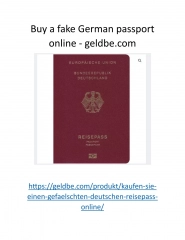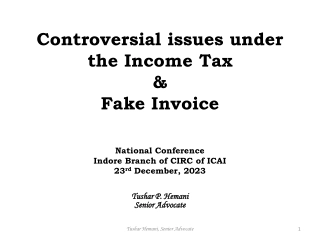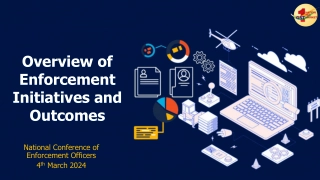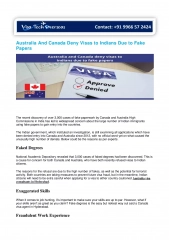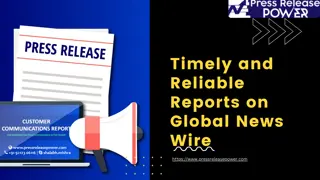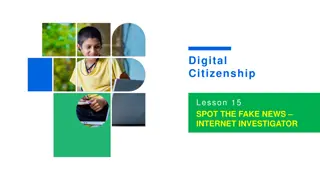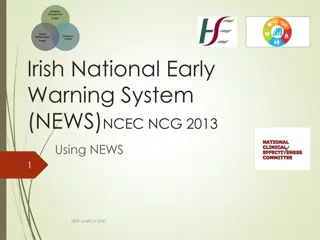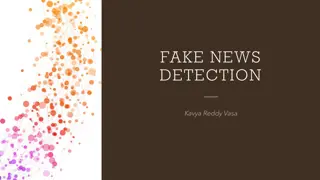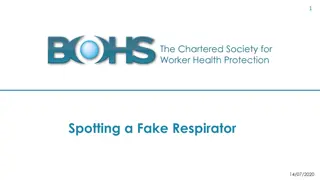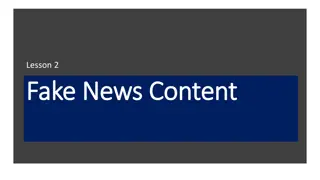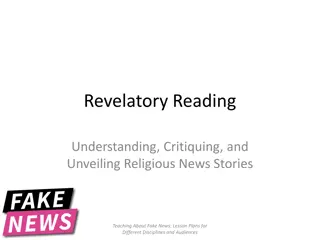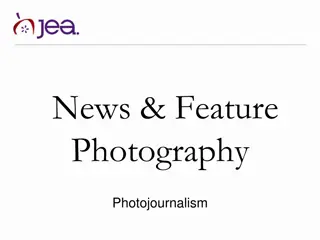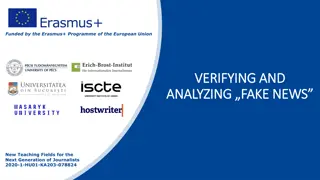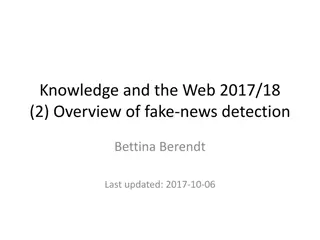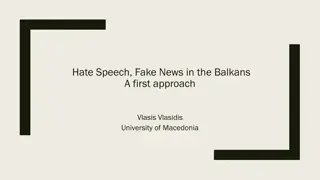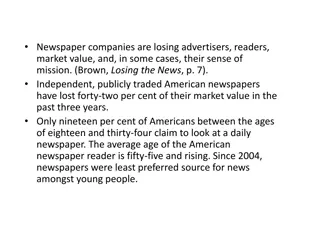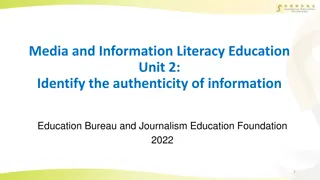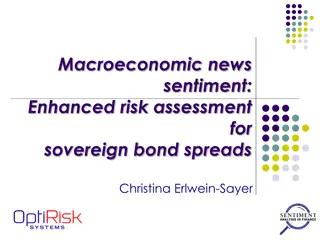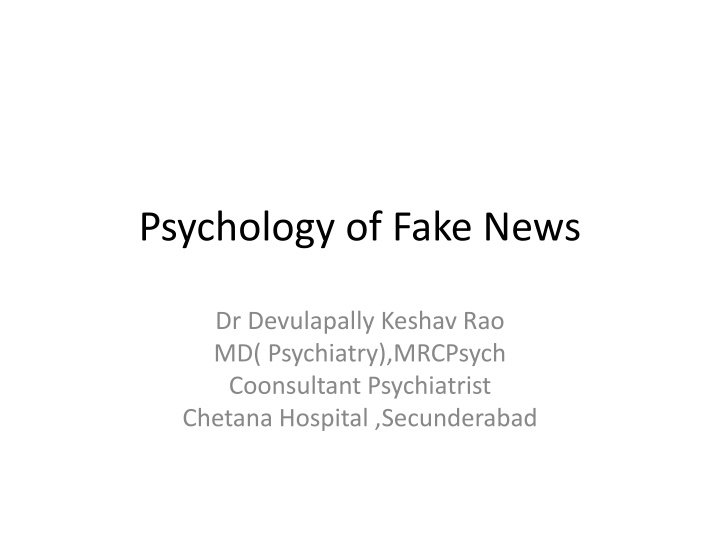
Psychology of Fake News
Discover the intricate details of fake news from a psychological perspective with insights on creators, believers, and spreaders. Unveil the psychological factors behind fake news dissemination and learn how to combat it effectively by fostering a culture of truth and critical thinking.
Download Presentation

Please find below an Image/Link to download the presentation.
The content on the website is provided AS IS for your information and personal use only. It may not be sold, licensed, or shared on other websites without obtaining consent from the author. If you encounter any issues during the download, it is possible that the publisher has removed the file from their server.
You are allowed to download the files provided on this website for personal or commercial use, subject to the condition that they are used lawfully. All files are the property of their respective owners.
The content on the website is provided AS IS for your information and personal use only. It may not be sold, licensed, or shared on other websites without obtaining consent from the author.
E N D
Presentation Transcript
Psychology of Fake News Dr Devulapally Keshav Rao MD( Psychiatry),MRCPsych Coonsultant Psychiatrist Chetana Hospital ,Secunderabad
Outline Fake news Not new People involved in Fake news. Creator , Believer, Spreader. What are the psychological factors ? How not to believe or spread?
Fake news - not new Primitive societies. Villages killing innocents blaming witchcraft either deliberately or due to innocence or believing a mentally ill person with Schizophrenia. Now has become more sophisticated with inputs from professionals including psychologists. Could include business houses, countries and even products .
Creator - Psychology Difficult to study Some highly motivated ( Political, Religious) or paid . Some times motivation could be psychological gain. Pleasure that he could fool so many with his creation. Can be satisfaction with his artistic work. Anti social personality disorder no guilt, remorse , criminality high
Believer Psychology Confirmation Bias : People likely to believe information if it fits into their existing belief system. Ex 5 headed cobra on a country road. Cognitive Consonance and Dissonance all our beliefs should be in harmony with each other. Holding conflicting beliefs together causes discomfort. Ex: A person may be an advocate of individual rights but his religious beliefs may prevent supporting LGBT groups. He may seek compromise in Decriminalisation. Similarily an atheist in Nationalist parties and a believer in left parties.
Forwarder or Spreader Psychology Can be highly motivated and knows the impact. He may even know that it is fake news. Some are innocent and genuinely believe. Confirmation bias . May be under social pressure to be seen as a resource or contributor. Fail to apply Truth filter and may not even read completely. Enormous data from multiple sources.
How to prevent ? Need to develop a culture of Truth. India : Mahatma Gandhi. Raja Harishchandra. Telling lies in day to day life. Kashmiri Jhoota. Indian politicians. To use word liar is unparliamentary in UK. Pleading Guilty is common in UK Critical thinking skills and questioning skills from childhood. Deliberately exposing multiple points of view and see others point of view ( Mind over mood, Reason over passion)
How to prevent Practical tips Consider the possibility of fake news before forwarding. Every time. Is the story too unusual to believe? Such an unusual story will be published by main stream media. Check Google. Don t be misled by online Newspapers or publications. Think about the impact on society. If the outcome is negative, don t forward. Think about legal problems. Sometimes foreign travel. Legislations can be misused by ruling parties.


